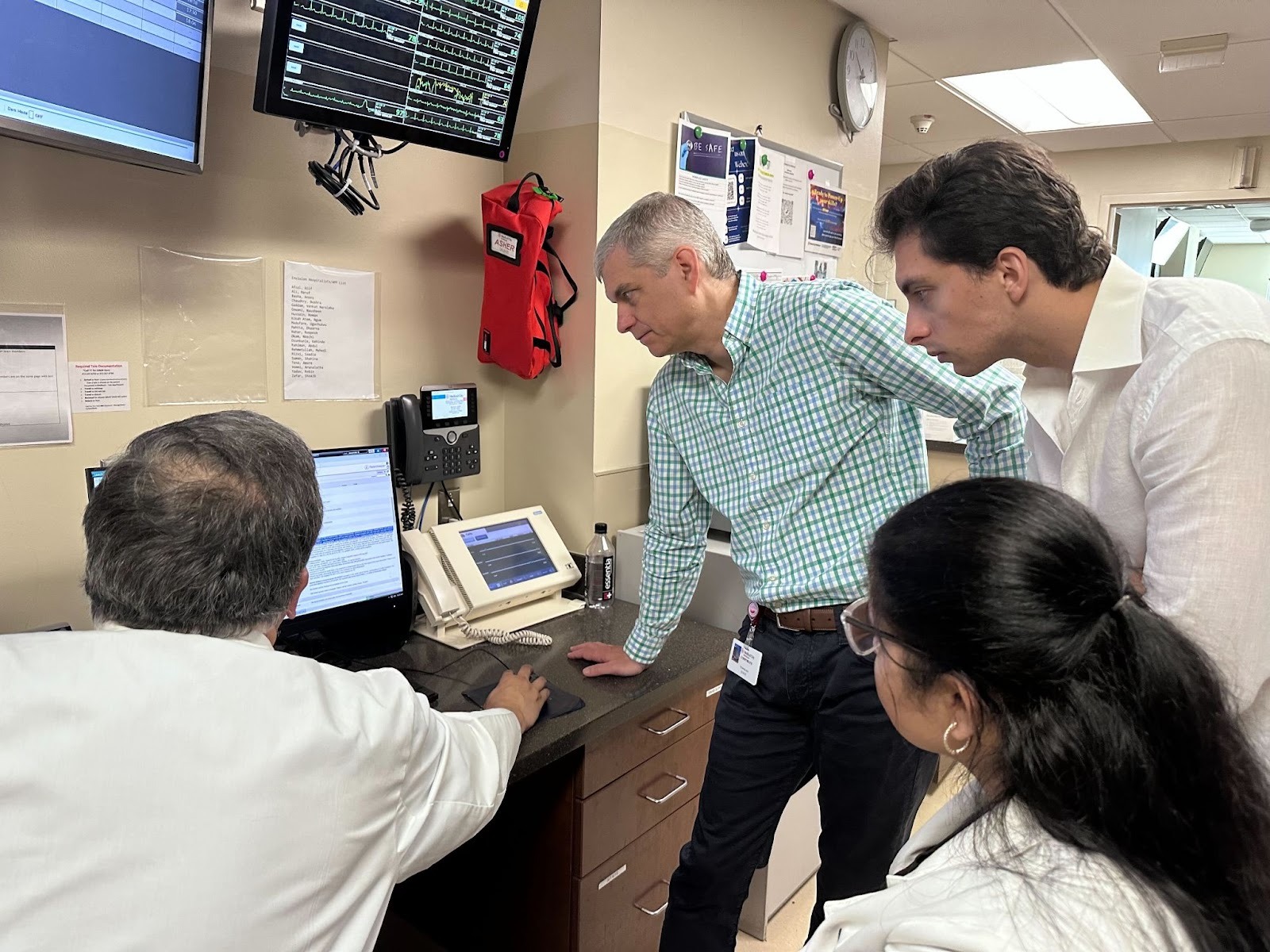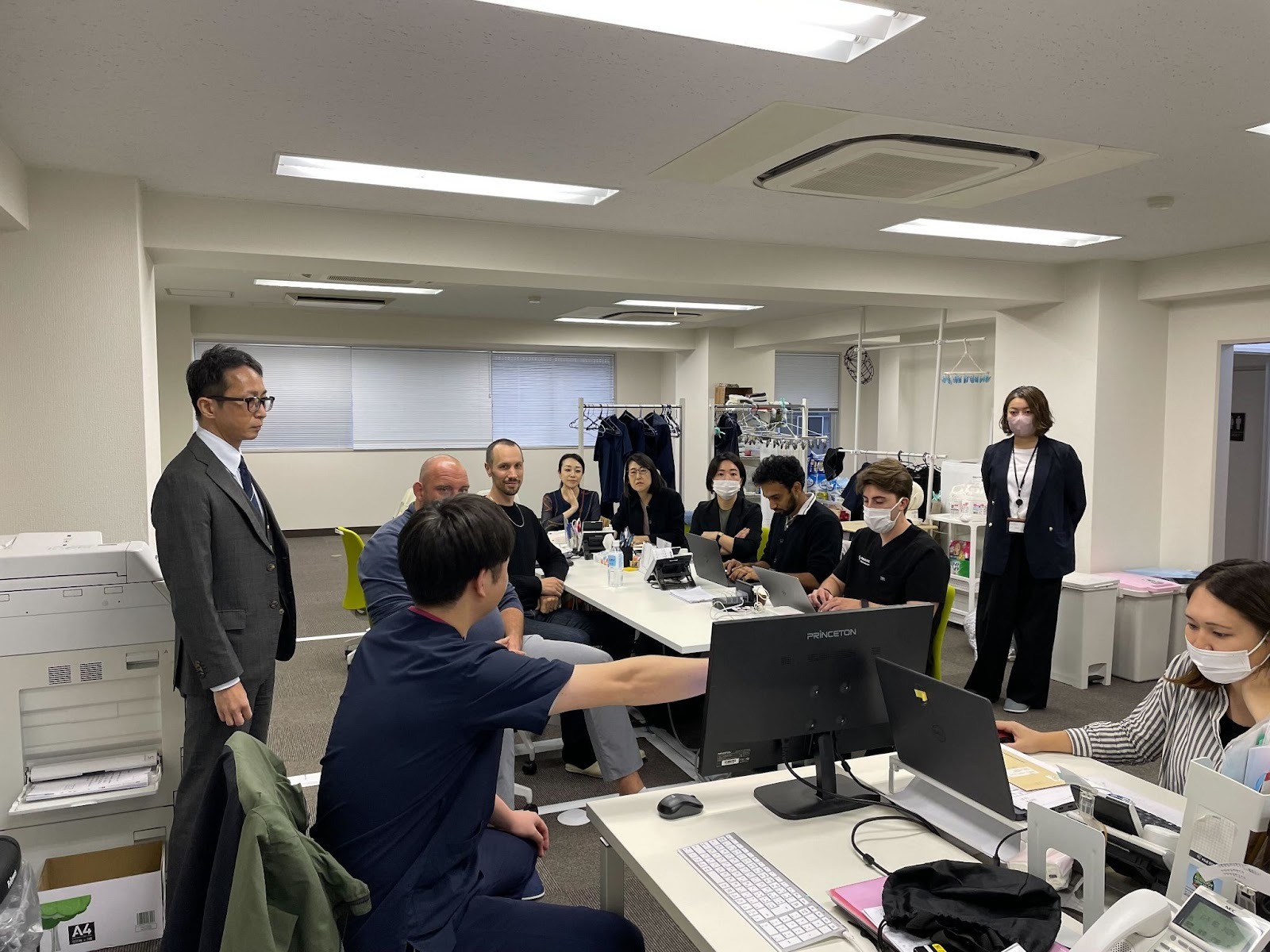Since ChatGPT became a household name in 2023, generative AI has made strides in re-shaping nearly every industry: healthcare is no exception. In just the last year, AI adoption among U.S. physicians has surged from 38% to 66% (up 78% from 2023), with health systems deploying AI to automate documentation, streamline operations, and proactively manage revenue. With generative AI gaining clear traction in healthcare, health systems must thoughtfully partner to adopt solutions that work with their systems and can drive measurable impact across clinical, financial, and operational workflows.
This post explores how forward-thinking healthcare organizations are deploying generative AI today, with examples across three high-impact areas: documentation, denials management, and Agentic AI.
What Is Generative AI in the Context of Healthcare?
Generative artificial intelligence (AI) refers to algorithms (often built on large language models (LLMs)) that can create new content such as text, code, audio, video, and more. In healthcare, generative AI powers a range of use cases: generating clinical notes from patient encounters, drafting patient instructions, summarizing medical histories, assisting with intake, generating appeal or referral letters, and helping revenue cycle teams identify and correct claims issues. These capabilities are transforming how work gets done across the entire healthcare ecosystem.
Unlike narrow automation tools, generative AI is flexible and adaptive. The key to success in healthcare isn’t generic capability; it’s domain-specific context. Generic models can introduce risk if they fail to understand medical terminology, misinterpret clinical nuance, or violate data standards. That’s why Commure builds AI specifically for healthcare, with native understanding of clinical language, healthcare data standards like HL7 and FHIR, and the operational realities of care delivery.
Healthcare Generative AI Use Cases
1. Reclaiming Time with Ambient AI
Clinical documentation is one of the most time-consuming burdens for providers, with physicians spending an average of 15.5 hours per week on paperwork and administrative tasks. Ambient AI helps solve this by passively listening to patient-provider conversations and generating structured medical notes in real time. No prompts, no typing, and no follow-up dictation required.
Commure Ambient AI integrates directly with leading EHRs, allowing clinicians to validate and finalize notes with just a few clicks. This eliminates after-hours documentation and reduces workflow disruptions from toggling between systems, two common causes of burnout. By streamlining this process, providers can focus fully on patient care and finish charting before the end of the day.

2. Fixing Denials Before They Happen
Denials are one of the most overlooked drivers of revenue leakage in healthcare, with more than 50% of denied claims never being reworked. The problem is rarely clinical; it's administrative. Poor documentation, coding inconsistencies, and missing attachments can all lead to delayed or denied payments.
Generative AI helps address the root causes of denials before they occur. Commure’s RCM product analyzes prior claim history, payer rules, and current documentation in real time to surface missing elements or inconsistencies before submission. It also learns from previous denials to proactively catch issues others would miss.
This approach transforms denials from a reactive cleanup problem into a preventative quality control process. The result: less rework, fewer delays, and millions saved. At one health system, Commure uncovered over $3.2 million in annual losses due to preventable denials—about 5% of total ARR. These savings were achieved not by cutting corners, but by tightening up workflows and reducing friction between clinical and billing systems.

3. Agents as the Glue Across Workflows
Commure Agents represent the next evolution of generative AI, with agentic AI. They move beyond passive LLM tools to become autonomous, goal-driven systems tailored specifically for healthcare. While traditional generative AI responds to user prompts, agentic AI takes it a step further: identifying tasks, orchestrating actions across systems, and executing complex workflows end-to-end.
These agents aren’t generic. Each one is purpose-built for a specific function, such as verifying insurance, scheduling patient appointments, or managing intake, and is configurable to align with each organization’s policies, EHR environment, and operational structure. They complete tasks faster and proactively anticipate what needs to happen next, based on real-time data and historical patterns.
By embedding agents across clinical, financial, and operational teams, Commure gives health systems a scalable way to automate intelligently without relying on fragmented, inflexible tools. The result is a more connected enterprise, where frontline teams are supported, not overwhelmed, and where automation adds precision instead of complexity.

Why Purpose-Built AI is a Necessity
Off-the-shelf generative AI tools may seem appealing, but they rarely hold up to the complexity of healthcare. Clinical nuance, regulatory requirements, and system interoperability demand more than just a general-purpose chatbot or note generator.
That’s why Commure takes a fundamentally different approach—pairing powerful AI models with Forward Deployed Engineering teams who work side by side with healthcare organizations. These teams dive deep into each customer’s workflows, systems, and pain points to configure, adapt, and optimize the AI for real-world use. The result isn’t a one-size-fits-all product; it’s a tailored solution built for the realities of care delivery, billing, and operations.
Generic models can hallucinate, introduce compliance risk, or fail to meet documentation standards. But Commure’s purpose-built AI systems are trained on healthcare-specific data, continuously improved in the field, and deployed with safeguards that ensure accuracy and clinical alignment.
Commure Agents aren’t layered on top of healthcare tools such as EHRs and other IT systems; they’re integrated into them and supported by hands-on engineering that ensures they perform across the entire healthcare enterprise.
Unlocking Efficiency at Scale with Generative AI
Generative AI isn’t just another tool—it’s a strategic foundation for scalable transformation. When embedded across clinical, financial, and operational workflows, it enables health systems to work faster, reduce administrative overhead, and extend the impact of every team. With purpose-built, agent-driven solutions, organizations can move beyond isolated automations toward a unified approach that improves care delivery, operational performance, and financial outcomes.
Explore how Commure is leading this shift across the full spectrum of healthcare operations.


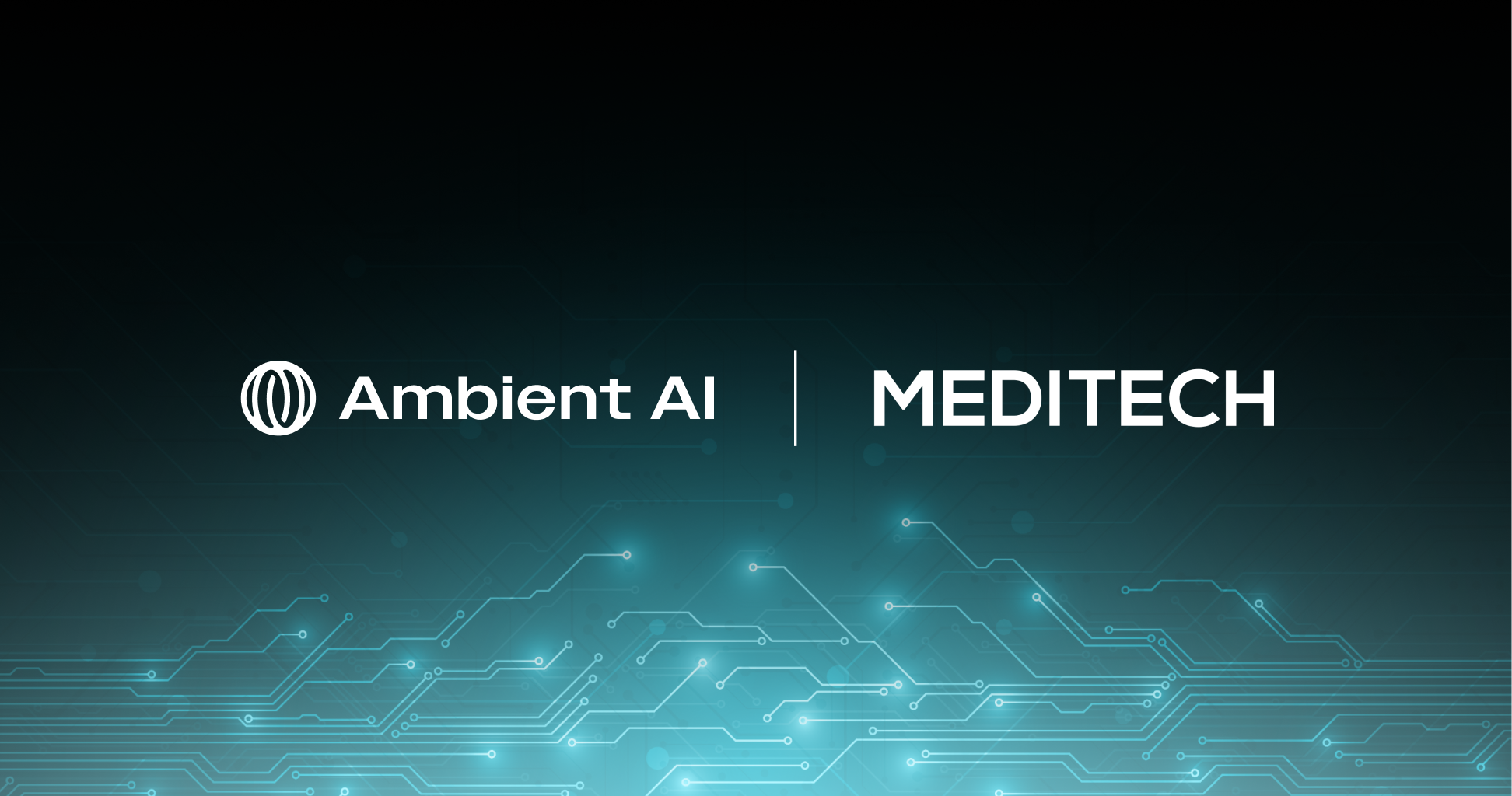
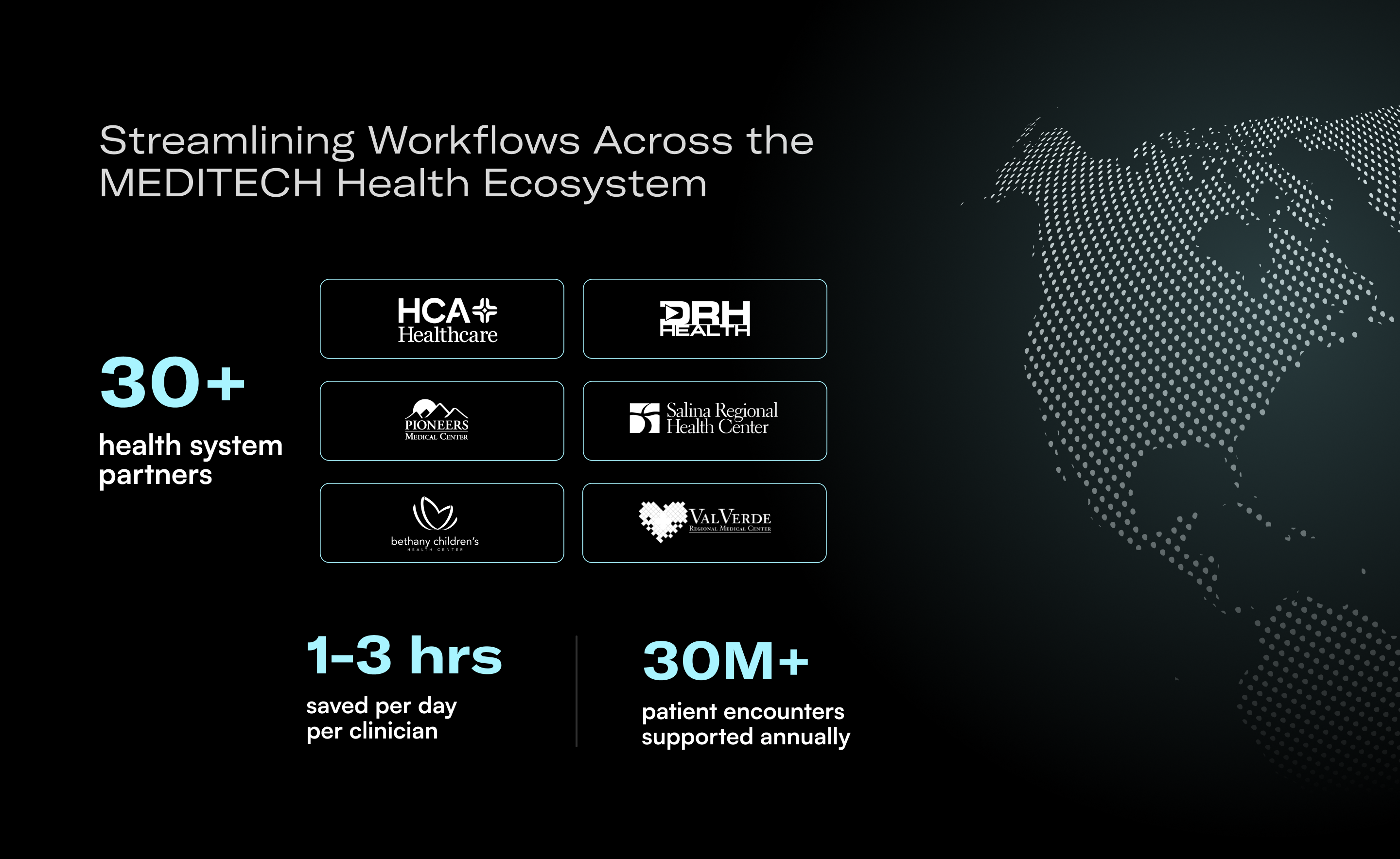


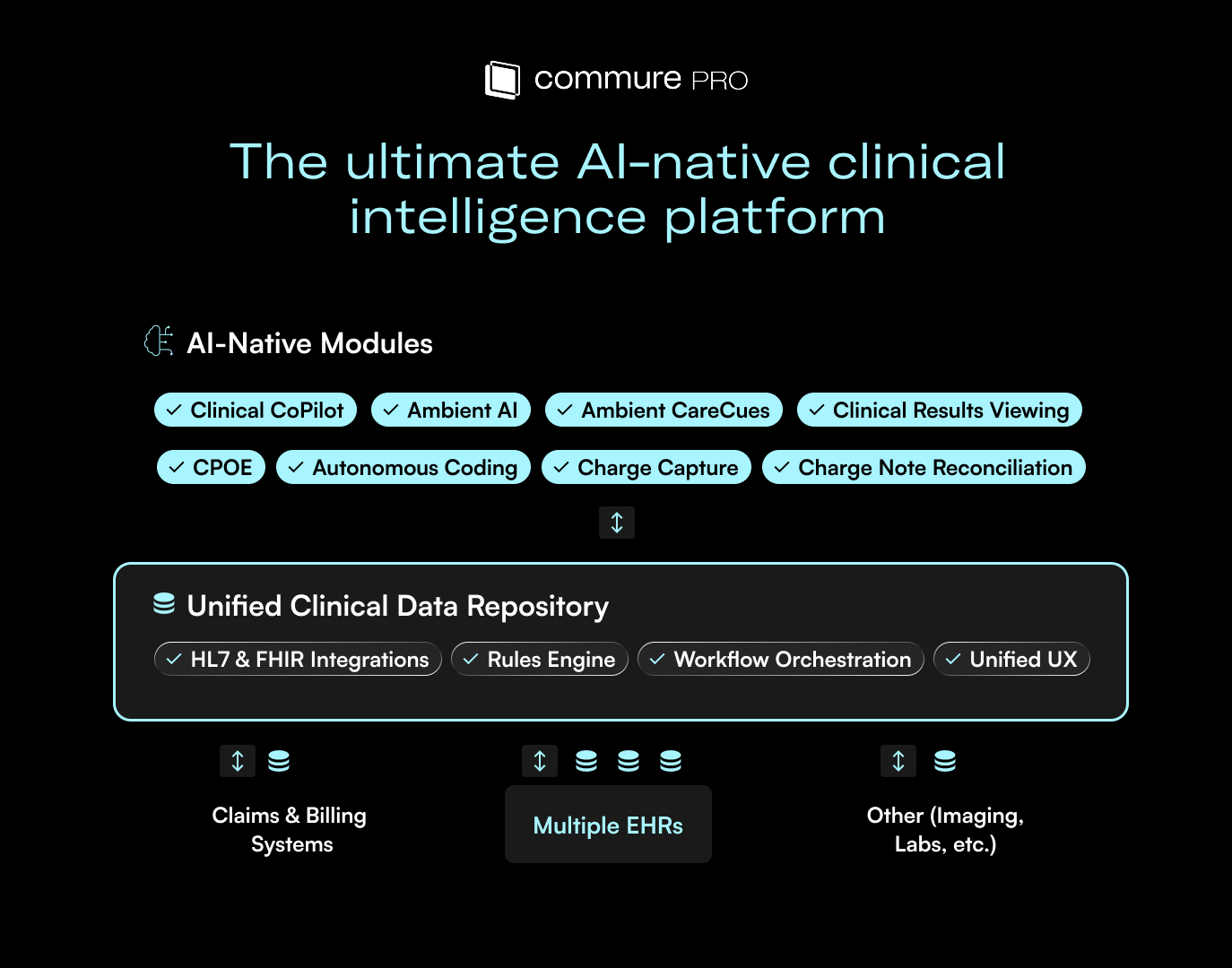

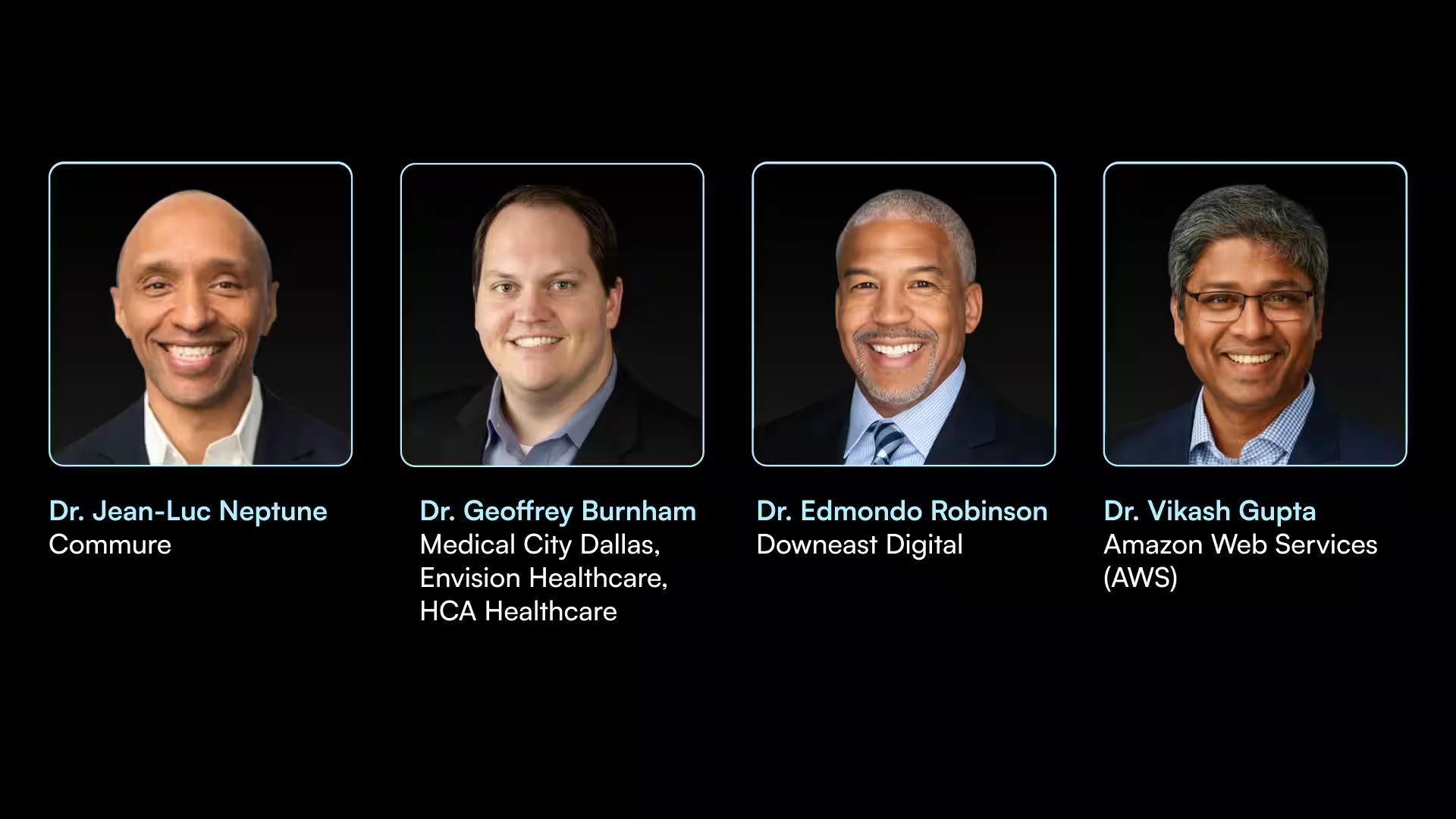

.avif)
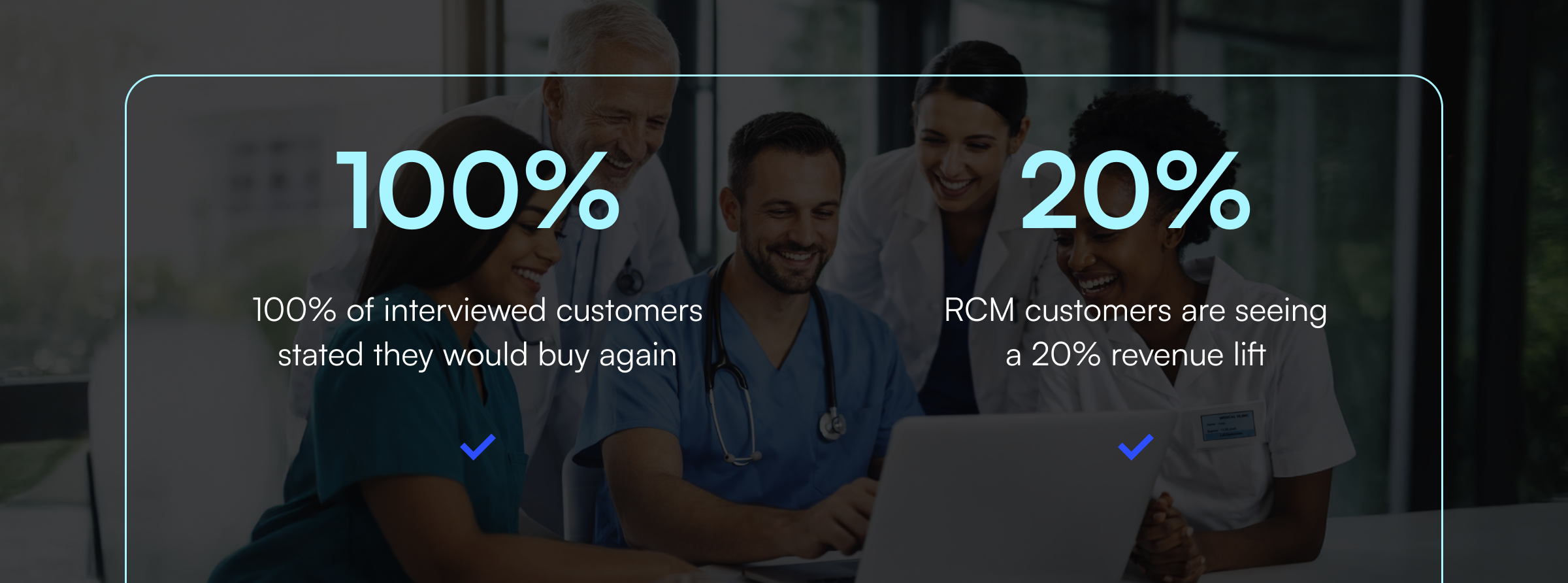
.png)
